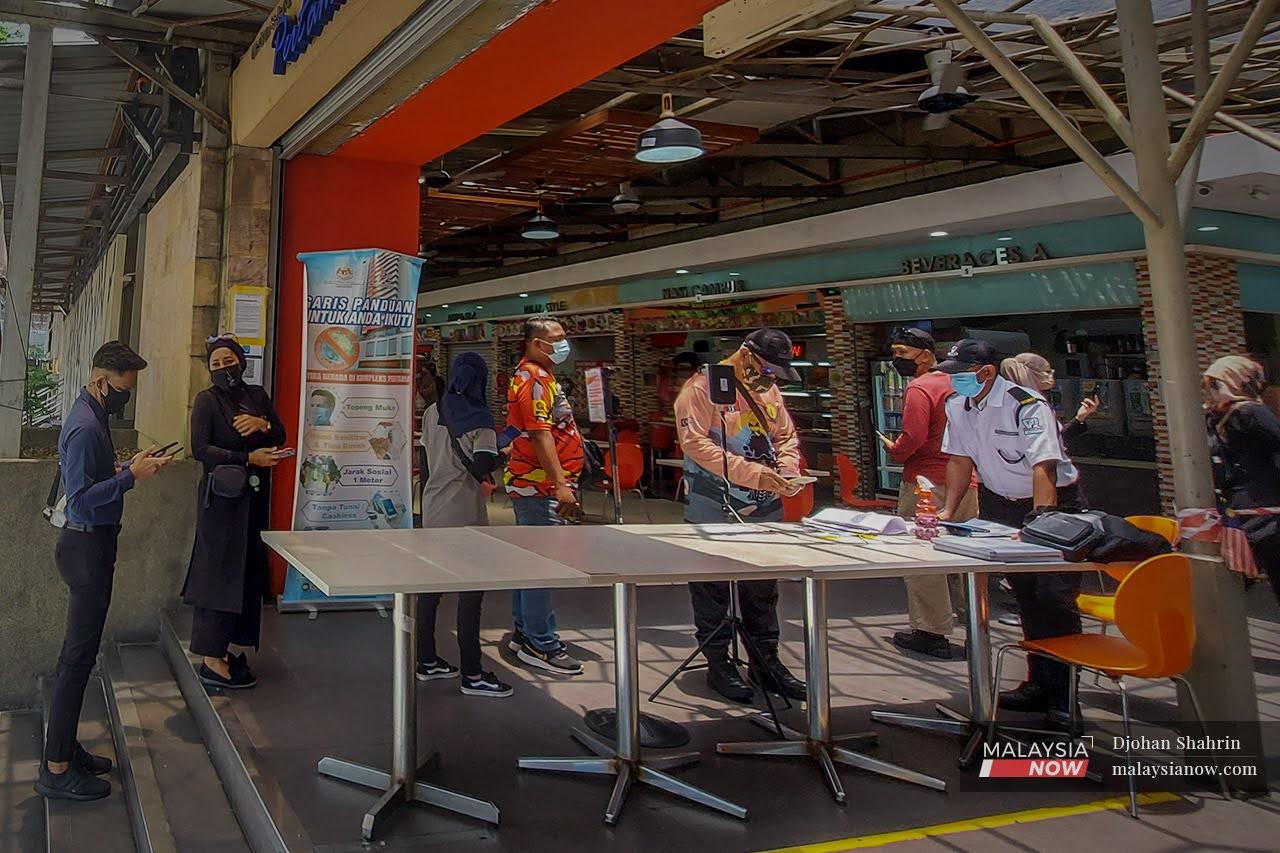Industry players fine with RM1 million compounds but say clear guidelines needed
They cite incidents in the past where different enforcement agencies have different interpretations of the SOPs.
Just In
Industry players have no objection to the government’s move to increase the maximum amount of compound for companies that repeatedly violate health SOPs, but want clear guidelines in place before the fines, possibly of up to RM1 million, come into effect.
Speaking to MalaysiaNow, they said discussions should be held with stakeholders before any decision is made.
Retail tycoon Ameer Ali Mydin said this would allow businesses to understand the issue and provide their input.
“Previous experience has shown that the guidelines were never clear and were subject to the interpretation of officers on the ground,” Ameer, who owns the Mydin hypermarket chain, said.
“If they discussed with us that such and such are the guidelines, I think that would be very fair.”
A bill to amend the Prevention and Control of Infectious Diseases Act 1988 or Act 342 was tabled for first reading in the Dewan Rakyat on Dec 14.
The amendments, among others, would allow individual offenders to be compounded up to RM10,000 instead of the current RM1,000.
The amendments under Section 25 of the Prevention and Control of Infectious Diseases (Amendment) Bill 2021 also propose that errant companies be compounded up to a maximum of RM1 million.
However the amendments may be further revised to reduce the fines by as much as half of the amounts currently stated.
Ameer said he agreed with the maximum amount of RM1 million presently proposed as the Covid-19 pandemic was a serious matter especially given the threat of new variants.
However, he said the fines themselves are arbitrary, as are the guidelines for business operations.
Malaysian Employers Federation president Syed Hussain Syed Husman likewise saw the maximum figure of RM1 million as justified.
“Repeat offenders from large companies did not not take the earlier penalties imposed on them seriously,” he said.
However he urged the government against imposing heavy penalties for minor offences, agreeing that clear guidelines are needed for this.
He gave the example of the burger seller who was fined RM50,000 earlier this year for violating SOPs.
“The guidelines are to ensure justice for those who cannot afford it, apart from imposing appropriate values on those who make huge profits and yet ignore the SOPs,” he said.
“We hope this will apply to offenders in both the private and public sectors who are repeat offenders.”
Ameer meanwhile cited the example of the guidelines on sanitisation which he said were forcing companies to spend unnecessarily.
“We need clear guidelines on what kind of sanitisation is needed,” he said. “Our understanding is that the Omicron variant spreads through the air. We spray the air but do we still need to sanitise tables, hand rails and escalators?
“Are we still required to take temperatures? This might no longer be relevant considering that many who test positive for Covid-19 are asymptomatic. We are not detecting infected people by doing this.”
Soh Thian Lai, president of the Federation of Malaysian Manufacturers, however voiced concern over the proposed amendments, suggesting instead a targeted approach to penalties.
He said only 32,388 or 2.7% of some 1.1 million companies in Malaysia are large businesses while the rest are SMEs.
“If it is the objective of the government to punish errant companies that ‘rake in millions in profit’, it should come up with a different and targeted approach instead of punishing the majority of companies which are SMEs struggling to survive,” he said.
He added that such companies might be forced to close down if slapped with a million-ringgit fine.
Soh, too, said further engagement should be held with the authorities to discuss a “win-win solution” for all parties.
He said manufacturers are often subjected to raids and visits by different agencies which have “inconsistent interpretations” of the SOPs.
“We are greatly concerned that we will be targeted again by enforcement officers with inconsistent interpretations of the SOPs as the higher fines from the amendments to Act 342 may create opportunities for the abuse of power and corruption,” he said.
Subscribe to our newsletter
To be updated with all the latest news and analyses daily.
